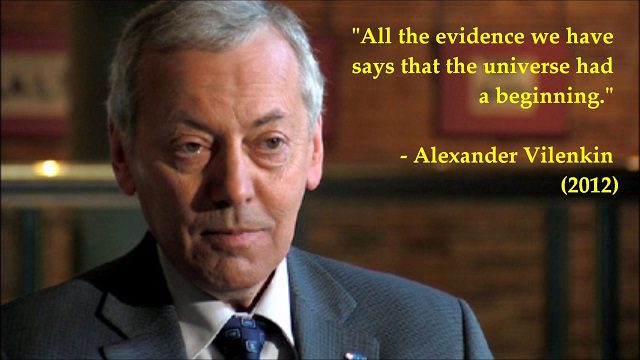
Grimlock is an atheist from Norway. He made a response to my initial provocative questions (see the whole thing). This is my counter-reply. Due to his length I can’t reply to absolutely everything (that would make this post way too long). His words will be in blue.
*****
One thing I habitually ask atheists is to explain how matter could obtain the qualities it has, including evolving into living organisms. I don’t see that science (at least to my knowledge) has yet explained that, but you guys object when we suggest that a God might be the explanation of the universe and its marvels. You in turn call that “god of the gaps.”
But I don’t see that whatever explanation you come up with is all that more explanatory or plausible than our “answer.” I see it as atheists having even more faith, and a much more blind faith, in the inherent capabilities of matter, than we Christians exercise in believing in God. At least we have (love or despise them) some 25 theistic “proofs” for God, while we await even one plausible materialistic scientific explanation of matter evolving into life and everything we see in the universe: all starting from a chaotic explosion that itself has no good explanation as to prior cause.
Do you know that feeling when your comment ends up being a 2700 word essay?
I do very well! :-)
I interpret these issues as dealing with the matter of providing explanations. Different types of explanations, to different types of questions, but still; explanations. Consequently, I’ll endeavour to provide my view on a view different questions, and also how I see my view compared to the theistic view. The following are the different questions.
1) Why is there stuff? (Also phrased as why is there something rather than nothing?)
2) Given that there are stuff, why is there is particular stuff?
3) Given that there are this particular stuff, how can these particular events come to pass?
Throughout pondering these questions I shall also consider that if we take it as given that these events came to pass, what is the most plausible explanation for these events; theism or naturalism?
Good start!
[for the sake of space, I have passed over his self-described “digression” regarding what he thinks “makes something a good explanation.” See it at the original posting]
1) Why is there stuff? (Also phrased as why is there something rather than nothing?)
I have no idea. It might be that there not being anything at all is utterly incoherent and impossible. But perhaps not.
It might be thought that the theist has an edge here — after all, a common claim is to say that God is necessary, that He had to exist. But I find this unconvincing. It is far too easy to simply inquire, why is it so that God is necessary?
Instead, one ought to concede that at some point you just have to say that this is simply how it is. A brute fact, if you will. My intuition (admittedly hopelessly useless in this context) is inclined towards this view. A bit of epistemic humility, and a concession that I don’t think the mere existence of anything at all provides neither the naturalist nor the theist with an edge.
As a quick note, the two criteria that I laid out for what makes a good explanation is futile here. I have no idea how to explain existence of stuff in a way that existence must follow, nor do I see how existence — everything that is — can be explained in terms of something else.
I greatly appreciate your honesty and “epistemic humility.” I think , right off the bat, this gets to the heart of the matter and the question of relative explanatory value of theism and atheism for these grand cosmological / material mysteries. You ask, “why is it so that God is necessary?” The answer is simple: something has to explain why the universe is here, and why it is so unbelievably marvelous and extraordinary.
This “something” is what Einstein called his own religion (a sort of pantheism or panentheism). He recognized that straight atheism was woefully inadequate to explain what we observe; especially all the more so, as we learn more and more about physics. His religion was very different from ours as theists; yet on the other hand, it is far more like our cosmological answers and religion than your answer (or “epistemologically humble” non-answer, as the case may be) and non-religion.
I found a site called Brief Answers to Cosmic Questions (run by NASA / Harvard / Smithsonian Institute). It made the fascinating observation (one of many):
Was the Big Bang the origin of the universe?
It is a common misconception that the Big Bang was the origin of the universe. In reality, the Big Bang scenario is completely silent about how the universe came into existence in the first place. In fact, the closer we look to time “zero,” the less certain we are about what actually happened, because our current description of physical laws do not yet apply to such extremes of nature.
The Big Bang scenario simply assumes that space, time, and energy already existed. But it tells us nothing about where they came from – or why the universe was born hot and dense to begin with.
I just did a series of critiques of Richard Dawkins’ book, The God Delusion. He complained about an “infinite regress” where the theist appeals to God and then Dawkins asks (thinking he is spoiling the party), “well, where did God come from?” He came from nowhere. He was always there, by definition. He’s not subject to the laws of science. We can’t prove about matter (at least according to our present knowledge), what theists attribute to God: self-existence, self-sufficiency, and eternality.
But in the quotation above, “space, time, and energy already existed” before the Big Bang, and moreover, we know “nothing about where they came from” (my emphasis). Well, isn’t that something? Science is awful ignorant about some very important things, isn’t it? Theists are mocked and looked down on all the time for “god of the gaps.”
But how is the above scenario any different? How is it not “matter of the gaps” or making matter god: as I have mercilessly satirized, to the consternation of many atheists (oooh: you should have seen the insults, in the attempt to shut me up!)? Matter was just there; we know not how — don’t have a clue — but we will believe it anyway, if we are materialists, because, what choice is there (minus God)? This is truly a faith-filled belief in something with no evidence: precisely as theists and Christians are constantly criticized (and I would say it is a bum rap in our case).
You say, “this is simply how it is.” Okay, that’s fine. Matter’s here; the universe is here. We have no inkling how or why, but “it’s simply how it is.” There’s no evidence there. My problem with this is that we are always forbidden (under pain of being called irrational, gullible, superstitious, followers of the tooth fairy and leprechauns, et al) to posit that God was the Prime Mover and First Cause. At least we can provide many reasonable arguments for His existence. Science offers none for the universe before the Big Bang (not according to its own methodology of relentless cause and effect). We just saw that above. So why is that view supposedly so much more reasonable and plausible than ours? I don’t buy it! It’s simply not. I think our view is far more reasonable and plausible.
2) Given that there are stuff, why is there is particular stuff?
To this, I think one ought to be rather more specific. I don’t know if it is meaningful to ask why this particular stuff exists. It might be some if one limits the scope, for instance as is done in the fine-tuning argument. Or, as you ask, why does matter act in the way that it does?
Yes I would, but not only that; also, how is it that it came to evolve and become what it now is?
Yet, once again, I must admit that I don’t know. I am not surprised that the stuff that exists has some regularity at some level. After all, what would be the alternative? Sheer randomness?
I don’t see how that could be conceived without the randomness having some probability distribution. But then you see regularities at some aggregated level, and you’re once again given some regularities. So I am not surprised that the stuff that exists behaves in some way with regularity.
It’s perfectly conceivable that the universe could be a chaotic, random, senseless place that simply didn’t have all these laws and regularities of nature that we observe (uniformitarianism, etc.). In reality it has extraordinary order, and so we must ask why? From whence did such amazing things derive?
At some limited level, one could explain the stuff that exists by appealing to other existing stuff. For instance, certain of our so-called laws of nature (which I tend to think of as descriptive rather than normative) appear to be emergent from other underlying regularities. But as for explaining these regularities, I don’t know.
How does theism do in this regard? Not particularly well, I think. One might be tempted to claim that God made it so that things are as they are. But as with (1), one always seem justified in asking why stuff is so that God is the ontologically non-contingent part of existence. Note also the criteria that I set for explanations; It is hard to see why this particular type of stuff would follow from God, and as an appeal to an entity whose existence is not an immediate part of our ontology, it utterly fails at appealing to established ontologies.
Yeah, you simply rule out the possibility of God from the outset, or (perhaps more accurately) rule out that God as an explanation or First Cause can never be more plausible than your explanation. Death by preconceived category . . . But since your explanation of these fundamental questions so far is nothing; that’s not a very high bar to surpass, is it?
Now, another digression might be appropriate. I believe there is one way we could look at our stuff, what we perceive to exist, and give either theism or naturalism the edge.
[see another “digression” comment in Grimlock’s original posting at this point, that provides relevant context]
Consider the universe as a whole, or on a general level. We observe that physical stuff exists and changes. The mental that we observe (animals, including humans) appear to be dependent on the physical. This seems to correspond better with naturalism than with supernaturalism, and as such, the stuff that we do observe seems, on a very general level, to provide some evidence for naturalism.
Nature does suggest naturalism, I agree, but that’s only after the “wheels have been set in motion.” Observational cause and effect are fine; no one disagrees with that. How things came to be in the first place is what I am interested in, in this discussion. I deny that everything mental is dependent on the physical, but that’s a completely different discussion.
3) Given that there are this particular stuff, how can these particular events come to pass?
Now we come to, I think, at least three points that you make in the quote above.
3a) You appeal to life originating from non-life. Abiogenesis, as I believe it is called. It is true that there is no current scientific theory that explains either how life can originate from non-life, or how life did originate from non-life. (If anyone knows differently, I’d love to be corrected.)
Exactly. So once again, materialistic science has no clue; not even the hint of one.
I expect that it would be tempting to here, once again, appeal to God as an explanation.
Not only tempting, but equally as reasonable, and (I say) more plausible than matter coming from nothing for who knows what reason, or having some sort of supposed faux-eternality, and somehow organizing itself into ever more complex forms, up to and including life and consciousness.
As a contrast, I will appeal to the following: Saying the word “chemistry” while doing a vaguely circular gesture with my hand. Let us now compare these explanations, based on the criteria that I appealed to above.
Do either of these explanations make it so that the life originating from non-life is a reasonable consequence? I don’t see how. Neither provides sufficient details, and while one could always add ad-hoc premises to either explanation, that seems… well, ad-hoc. So in terms of (i), neither is particularly successful.
How about in terms of (ii)? Well, as this is used as an appeal to increase God’s plausibility, I fail to see how one can contend that God is an entity that exists in our ontology without being circular. Whereas chemistry is something we know to exist. Thus, my vague explanation is superior to the God-explanation of terms of (ii). This is what I tend to think characterizes a god-of-the-gaps argument; A phenomena that is not currently understood, where God has little to no explanatory power, and where we have a promising venue in terms of stuff that we already possess in our ontology.
Well, that’s just it. You and atheists say “God isn’t in our ontology; we can’t comprehend him, or understand why anyone else believes in him.” Or if theists do offer reasons they are circular or inconsistent, or incoherent, or non-empirical / evidential. But atheists have always been in a small minority. Most of mankind is religious, believing in some sort of superior power or Supreme Being. So the facts on the ground suggest an existing ontology that does indeed include God or at least some sense of an organizing, creative force (if it is deemed as non-personal).
Here we get into the waters of “properly basic belief.” Alvin Plantinga explored that in a famous paper. I’ll quote a good chunk of it:
[T]he believer is entirely within his intellectual rights in believing as he does even if he doesn’t know of any good theistic argument (deductive or inductive), even if he doesn’t believe that there is any such argument, and even if in fact no such argument exists. . . . it is perfectly rational to accept belief in God without accepting it on the basis of any other beliefs or propositions at all.
The evidentialist objector holds that one who accepts theistic belief is in some way irrational or noetically substandard.
Typically this objection has been rooted in some form of classical foundationalism, according to which a proposition p is properly basic for a person S if and only if p is either self-evident or incorrigible for S (modern foundationalism) or either self-evident or ‘evident to the senses’ for S (ancient and medieval foundationalism). [Elsewhere] I argued that both forms of foundationalism are self referentially incoherent and must therefore be rejected. Insofar as the evidentialist objection is rooted in classical foundationalism, it is poorly rooted indeed: and so far as I know, no one has developed and articulated any other reason for supposing that belief in God is not properly basic. Of course it doesn’t follow that it is properly basic; perhaps the class of properly basic propositions is broader than classical foundationalists think, but still not broad enough to admit belief in God. But why think so?
I’ve heard it argued that if I have no evidence for the existence of God, then if I accept that proposition, my belief will be groundless, or gratuitous, or arbitrary. I think this is an error; let me explain. Suppose we consider perceptual beliefs, memory beliefs, and be liefs which ascribe mental states to other persons: such beliefs as
(1) I see a tree,
(2) I had breakfast this morning, and
(3) That person is angry.
Although beliefs of this sort are typically and properly taken as basic, it would be a mistake to describe them as groundless.
[ . . . ]
By way of conclusion then: being self-evident, or incorrigible, or evident to the senses is not a necessary condition of proper basicality. Furthermore, one who holds that belief in God is properly basic is not thereby committed to the idea that belief in God is groundless or gratuitous or without justifying circumstances. And even if he lacks a general criterion of proper basicality, he is not obliged to suppose that just any or nearly any belief — belief in the Great Pumpkin, for example — is properly basic.
The takeaway here is that appeals to abiogenesis hardly gives the theist an advantage, but rather the opposite.
Really? You yourself freely (and admirably) admitted above: “It is true that there is no current scientific theory that explains either how life can originate from non-life, or how life did originate from non-life.” Yet despite that big zero explanation-wise, you continue to believe that an exclusively natural explanation (what explanation?!) is superior to a Christian believing that “God created life” (which may, of course, have been through the means of evolution). Once again you have nothing, but you regard it as a superior explanation (nothing!) to simple Christian belief in a God Who created the universe.
3b) You also appeal to the universe’s alleged cause, and more broadly its origin. But in terms of explanations, let us once again make a comparison.
This time, we once again appeal to God as an explanation. One could, I suppose, add more speculative details, if one is so inclined. I would undoubtedly make a muddle of that, so I shall leave it be.
Compare this with this model by Anthony Aguirre and Steven Gratton.
The latter, entirely naturalistic, explanation provides an expectation of our universe. So in terms of (i) above, it is rather successful.
What is the proof and evidence that they offer, beyond being just a speculation from their own brains? You tell me. Most of the article is way over my head (far too technical for a non-physicist or non-mathematician). If it’s mere speculation, with no solid scientific evidence, then of course it is ultimately on the same epistemological ground as our belief in God.
These guys think matter has all these amazing inherent capabilities. We believe God does. I fail to see how your scenario is superior to ours. Yours is self-contradicting when it claims to be superior in terms of explanation, yet offers no compelling evidence from its own supposedly self-sufficient scientific paradigm.
This is the heart of my ultra-controversial, feather-ruffling, sacred cow-busting satire of atheist “atomism”:
Matter essentially “becomes god” in the atheist / materialist view; it has the inherent ability to do everything by itself: a power that Christians believe God caused, by putting these potentialities and actual characteristics into matter and natural laws, as their ultimate Creator and ongoing Preserver and Sustainer.
The atheist places extraordinary faith in matter – arguably far more faith than we place in God, because it is much more difficult to explain everything that god-matter does by science alone. . . .
The polytheistic materialist . . . thinks that trillions of his atom-gods and their distant relatives, the cell-gods, can make absolutely everything in the universe occur, by their own power, possessed eternally either in full or (who knows how?) in inevitably unfolding potentiality.
One might call this (to coin a phrase) Atomism (“belief that the atom is God”). Trillions of omnipotent, omniscient atoms can do absolutely everything that the Christian God can do, and for little or no reason that anyone can understand (i.e., why and how the atom-god came to possess such powers in the first place). The Atomist openly and unreservedly worships his trillions of gods, with the most perfect, trusting, non-rational faith imaginable. He or she is what sociologists call a “true believer.”
Oh, and we mustn’t forget the time-goddess. She is often invoked in worshipful, reverential, awe-inspiring terms as the be-all, end-all explanation for things inexplicable, as if by magic her very incantation rises to an explanatory level sufficient to shut up any silly Christian, who is foolish enough to believe in one God rather than trillions. The time-goddess is the highest in the ranks of the Atomist’s wonderfully varied hierarchy of gods (sort of the “Zeus” of Atomism). One might call this belief Temporalism.
Atomism is a strong, fortress-like faith. It is often said that it “must be” what it is. The Atomist reverses the error of the Gnostic heretics. They thought spirit was great and that matter was evil. Atomists think matter is great (and god) and spirit is not only “evil” (metaphorically speaking), but beyond that: non-existent.
Is God as successful an explanation in terms of (i)? Not really. God could easily create other types of universes, not to mention eternal ones, or create a universe mid-existence in such a way that its current laws of nature does not explain its history.
I have found one vigorous critique of a similar paper by them. The great theistic apologist William Lane Craig criticizes their theory:
For the two models mentioned (Aguirre-Gratton and Carroll-Chen) were specifically addressed by name by Vilenkin in the paper from the Cambridge conference which I quoted in my opening speech. These models were comprised in Vilenkin’s conclusion, “None of these scenarios can actually be past-eternal.” So when Vilenkin says that they afford a “possible loophole,” the idea must be that because they deny the single assumption of the theorem, maybe that’s a way to avoid the beginning of the universe. But in his paper Vilenkin proceeds to close this loophole by showing that these models cannot be past-eternal for other reasons. . . .
To my delight [Alexander] Vilenkin furnished the unabridged version of his letter to [Lawrence] Krauss. . . .
Any theorem is only as good as its assumptions. The BGV theorem says that if the universe is on average expanding along a given worldline, this worldline cannot be infinite to the past.
A possible loophole is that there might be an epoch of contraction prior to the expansion. Models of this sort have been discussed by Aguirre & Gratton and by Carroll & Chen. They had to assume though that the minimum of entropy was reached at the bounce and offered no mechanism to enforce this condition. It seems to me that it is essentially equivalent to a beginning. . . .
Dr. Craig cited a letter from theoretical physicist and cosmologist Alexander Vilenkin to himself:
The Aguirre-Gratton model can avoid singularities by postulating a small “initial” closed universe and then allowing it to evolve in both directions of time. I put “initial” in quotation marks, because Aguirre and Gratton do not think of it that way. But this model requires that a very special condition is enforced at some moment in the history of the universe. At that moment, the universe should be very small and have very low entropy. Aguirre and Gratton do not specify a physical mechanism that could enforce such a condition. . . .
Whatever it’s worth, my view is that the BGV theorem does not say anything about the existence of God one way or the other. In particular, the beginning of the universe could be a natural event, described by quantum cosmology.
So Vilenkin is not some Christian apologist. He’s an agnostic, and is saying that his own theory doesn’t address the issue (which I think is proper). On the other hand, he doesn’t dogmatically rule out God either. I think this is the better, more open-minded scientific approach. Similarly, Dr. Craig opines:
As for Vilenkin’s theological views, while I would never rejoice that someone is not a Christian, I find his agnosticism to be helpful in that no one can accuse him of having a theological axe to grind in his defense of the universe’s beginning.
How about existing ontology? I believe the model by Aguirre and Gratton contains some speculative physics, and some appeals to existing physics. So it’s moderately successful in terms of (ii), while God – as mentioned before – fails in terms of (ii).
Dr. Craig debated atheist Dr. Sean Carroll (on You Tube), in February 2014. Dr. Carroll in the debate was an advocate of the Aguirre/Gratton thesis. He wrote in a post-debate reflection:
In contrast, I wanted to talk about a model developed by Anthony Aguirre and Stephen Gratton. They have a very simple and physically transparent model that (unlike my theory with Chen) imposes a low-entropy boundary condition at a mid-universe “bounce.” It’s a straightforward example of a perfectly well-defined theory that is clearly eternal, one that doesn’t have a beginning, and does so without invoking any hand-waving about quantum gravity. I challenged Craig to explain why this wasn’t a sensible example of an eternal universe, one that was in perfect accord with the BGV theorem, but he didn’t respond.
Dr. Craig may not have responded, but Dr. Vilenkin (the “V” in “BGV”) did. I showed above how he does not think Aguirre/Gratton is “in perfect accord” with his own. He thinks it does not show an eternal universe (let alone a “clearly eternal” one), but rather, one with essentially a “beginning.” See also a related video by Dr. Vilenkin, who stated in 2012, “All the evidence we have says that the universe had a beginning.”
Dr. Craig, with Paul Copan, offered further fundamental critiques of Aguirre/Gratton, in the book, The Kalam Cosmological Argument, Volume 2: Scientific Evidence for the Beginning of the Universe (Bloomsbury Publishing, 2017, p. 133):
A matter of some importance is that there is no communication; no causality by definition from one region to the other. Thus one can say that there is no eternal past that evolved into our present. . . . What one really has in this model are two separate universes that trace their origins to a past boundary (the very singularity that Borde, Guth, and Vilenkin have demonstrated). . . . if they are right, then a beginning of time has been demonstrated. Rather than a past eternal universe, one has a past finite multiverse.
3c) As a more general view, you appeal to at least 25 theistic arguments of proofs. I assume you consider these to be 25 strong theistic arguments, as I suspect there are far more actual arguments. I’d say that both (3a) and (3b) are instances of such theistic arguments, though not phrased particularly precisely.
I said nothing about relative strength. I would consider some fairly strong (e.g., cosmological, teleological) and some pretty weak (e.g., ontological, argument from beauty). I don’t consider any of them strictly a proof. Five days ago, I summarized my precise view of theistic proofs as follows:
My view remains what it has been for many years: nothing strictly / absolutely “proves” God’s existence. But . . .
I think His existence is exponentially more probable and plausible than atheism, based on the cumulative effect of a multitude of good and different types of (rational) theistic arguments, and the utter implausibility, incoherence, irrationality, and unacceptable level of blind faith of alternatives.
As a counter, one should note that there are many arguments against various forms of theism. A handful, primarily aimed at looking for contradictions or tensions in the concept of God, can be found in this compilation.
Of course there are. The question is (just as with our proofs): how good and convincing and reasonable are they?
Others can be found, for instance, at the Secular Outpost here on Patheos.
Since we’re trading lists, here are some of mine:
*
*
*
*
*
*
While I cannot claim to be familiar with all theistic arguments, my impression is that they can be put in a rough shape along the following lines:
P1: Phenomena A exists (e.g. the universe’s alleged beginning or ontologically real moral values)
P2: Phenomena B is more probable on theism than on atheism
C: Theism is more probable than atheism
In other words, the arguments appeal to some observed phenomena (concrete or abstract), and argue that this is more easily explained in terms of theism. (There are exceptions, obviously.) Without going into detail, the ones that I have encountered appear to me to fail to establish their conclusion with a high degree of certainty. As you don’t refer to any particular arguments, I shall respond with some general observations.
No particular beef, except to say that obviously I think they are stronger arguments than you do.
3c-1) I am deeply skeptical to the proposition that a person can coherently defend all such ‘strong’ arguments, as they rely on a variety of underlying premises and conceptions, all of which might not be compatible. My impression is also that most Christian philosophers criticise several arguments. (To name a couple of examples off the top of my head, I believe Swinburne has criticized EAAN, and that van Inwagen has criticized the argument from contingency. Though I might be mistaken about these specific examples.)
That’s true. They are of variable strength.
3c-2) I believe that Paul Draper has made the point that while some phenomena might support theism (e.g. the existence of minds), details of this fact (e.g. that minds seem to be dependent upon the physical) often provides evidence against theism.
Dependence on the physical (in Plantinga’s argument from other minds) is, I believe, irrelevant, because he’s looking at our “basic” belief that other minds exist, before we get to the specifics of the other minds or the mind-body question.
3c-3) When the arguments gets turned around a bit, there is usually a sense in which God in some way is supposed to be an explanation for some phenomena. But as we have seen, God tends to be a bad explanation in terms of (i) and (ii). One can improve upon the sense in which God fulfills (i), but only by adding further auxiliary propositions to the God hypothesis. This has the consequence of decreasing the modesty of God as an explanation, and thus increasing the burden of evidence on the theist.
Meanwhile, you have given me zero compelling scientific evidence for a purely materialistic explanation of the origin of the universe or for life. That is not any kind of appearance of strength for your position.
I believe that this provides a fairly thorough account of why appeals to specific phenomena in our universe is hard to credit to theism, but rather plays nicely along with naturalism.
As I said, it does for current processes (which we believe God set in motion and sustains in some sense). When we get to origins, it is exponentially more difficult to explain by materialism / naturalism alone.
Some final thoughts
Let me close by making some final remarks to a somewhat long comment. I find it vital to specify the scope of one’s explanations when comparing two explanatory models. In our case, we compare theism to naturalism. If we try to answer how life originated from non-life, we need to compare the respective explanations. I find that when one is careful with comparing like explanations with like, theism comes up short compared to naturalism.
Since you have given me no explanation, I fail to see how yours is better than ours! Our explanation is essentially the cosmological argument. You don’t like it, but I think most people would agree that at least a serious attempt at explanation, made by many great philosophers through the centuries, is superior to no explanation at all.
While there are some instances of what we observe that fit better with theism than with naturalism, on the whole, naturalism as the upper hand.
A takeaway is, I think, that appealing to questions such as the ones you raise does not, as I see it, provide challenges to naturalism that is not also shared by theism. I have tried to stay reasonably on point, and only include the digressions that I find pertinent.
Thank you for what I thought was an enjoyable and constructive exchange.
***
Photo credit: photograph of physicist Alexander Vilenkin from a You Tube video [You Tube / standard You Tube license]
***



























